Xiang Bing, Founding Dean of CKGSB, and Laura Tyson, Interim Dean of UC Berkeley’s Hass School of Business, had a dialogue on trade between the US and China during the CKGSB CEO Program’s US Module in UC Berkeley on August 6th. More than 50 Chinese business leaders, who are participants of this Chinese-language Executive Education program, joined the dialogue.
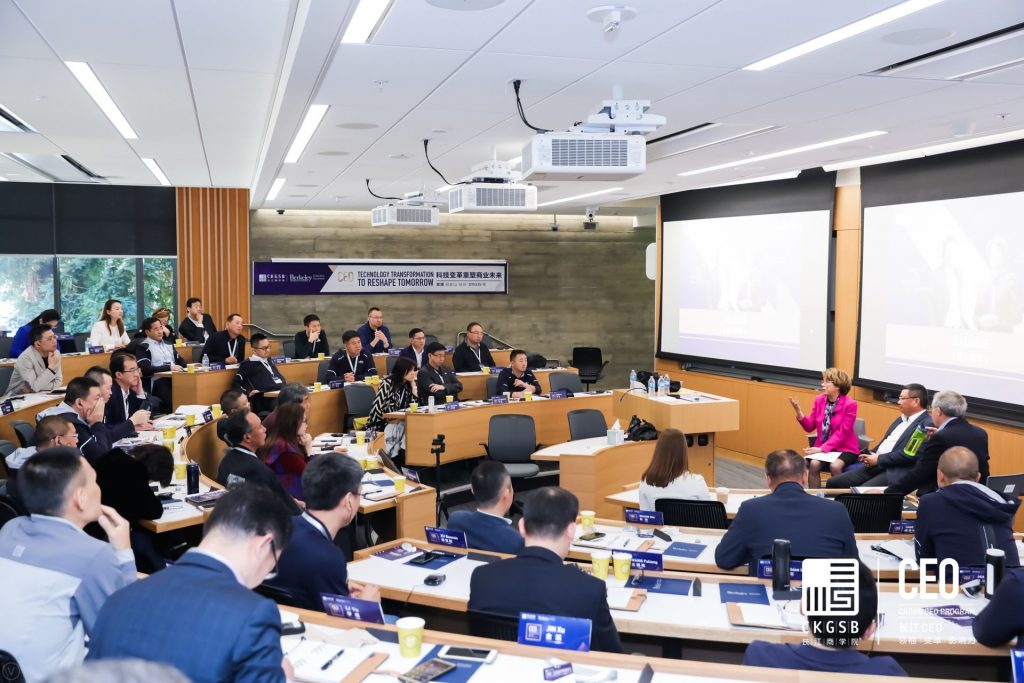 Deans and Students from the CKGSB’s CEO Program at UC Berkeley Haas
Deans and Students from the CKGSB’s CEO Program at UC Berkeley Haas
Dean Xiang and Dean Tyson kicked off the dialogue by addressing the challenges and opportunities in the US and China. Dean Xiang highlighted income inequality, uneven development among regions, pollution, the real estate bubble and the current tension between the US and China as some of the challenges looming over the Chinese economy. Nonetheless, Dean Xiang was optimistic about the Chinese economy, especially now that some of the country’s leading internet companies, like Alibaba and Tencent, have rapidly developed to lead the way on mobile payments globally. He said, “not only China, but also the world, is going through major changes and witnessing new technologies coming to life.”
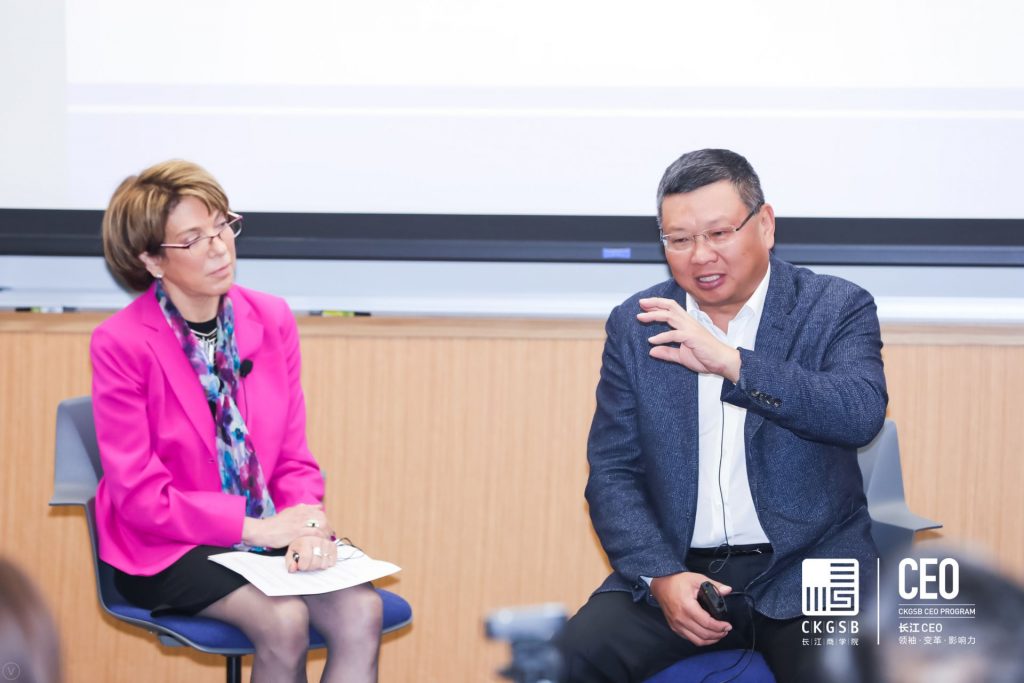 Laura Tyson (left), Interim Dean of UC Berkeley’s Hass School of Business, and Xiang Bing (right), Founding Dean of CKGSB
Laura Tyson (left), Interim Dean of UC Berkeley’s Hass School of Business, and Xiang Bing (right), Founding Dean of CKGSB
Dean Tyson pointed to concern over the US’s regional economic divergence caused by income inequality and unequal access to educational resources. Also, she warned people against the possible slowing-down of the US economy. She said there are lots of uncertainties due to the US-China trade friction and the Federal Reserve is thinking of tightening up the money supply. A report from The Economist shows that high-tech, such as AI, may threaten employment. She also thought that the US should invest more on infrastructure.
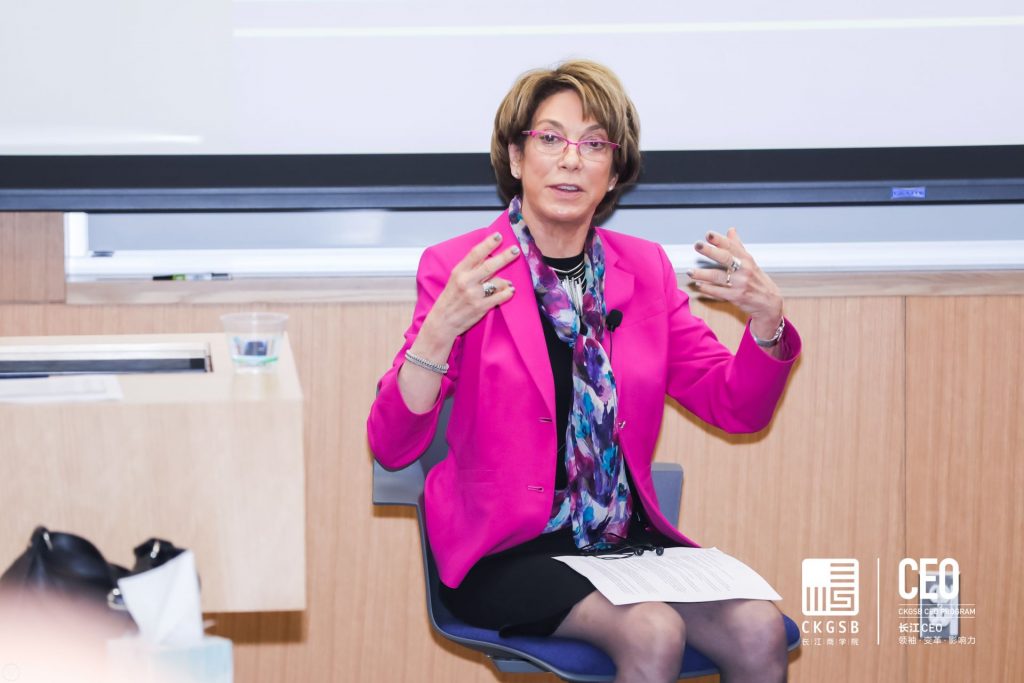 Laura Tyson, Interim Dean of UC Berkeley’s Hass School of Business, shedding light on the recent US trade policies
Laura Tyson, Interim Dean of UC Berkeley’s Hass School of Business, shedding light on the recent US trade policies
Dean Xiang, however, expressed his view in high-tech lowering labor costs and upgrading industries and, therefore, serving as a bonus to any society. He expressed his belief in the US economy remaining competitive, because of its continuous innovation. Dean Tyson then encouraged embracing technology, for which she suggested to learn from Germany, which fosters innovation while keeping the income disparity to a minimum.
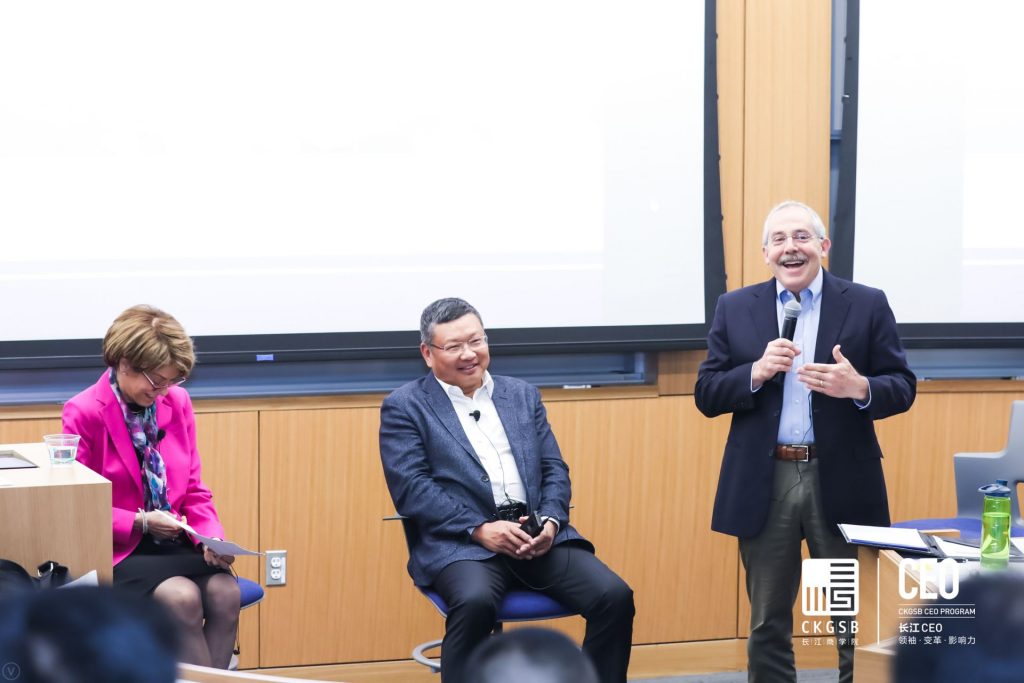 Laura Tyson (left), Interim Dean of UC Berkeley’s Hass School of Business, Xiang Bing (middle), Founding Dean of CKGSB, sharing their ideas on the impact of the recent trade policies between the US and China on each country’s companies
Laura Tyson (left), Interim Dean of UC Berkeley’s Hass School of Business, Xiang Bing (middle), Founding Dean of CKGSB, sharing their ideas on the impact of the recent trade policies between the US and China on each country’s companies
How do Chinese companies cope with restrictions from the US
The recent US trade friction policies are more representative of Trump’s own ideas than the government’s long-term position, concluded Dean Tyson. She claimed that US policies would have been very different if Hillary Clinton were President, in the sense that Hillary is an economist who believes that trade is good as it encourages innovation and benefits consumers, while Trump is a businessman who insists on a balance in the bilateral trade.
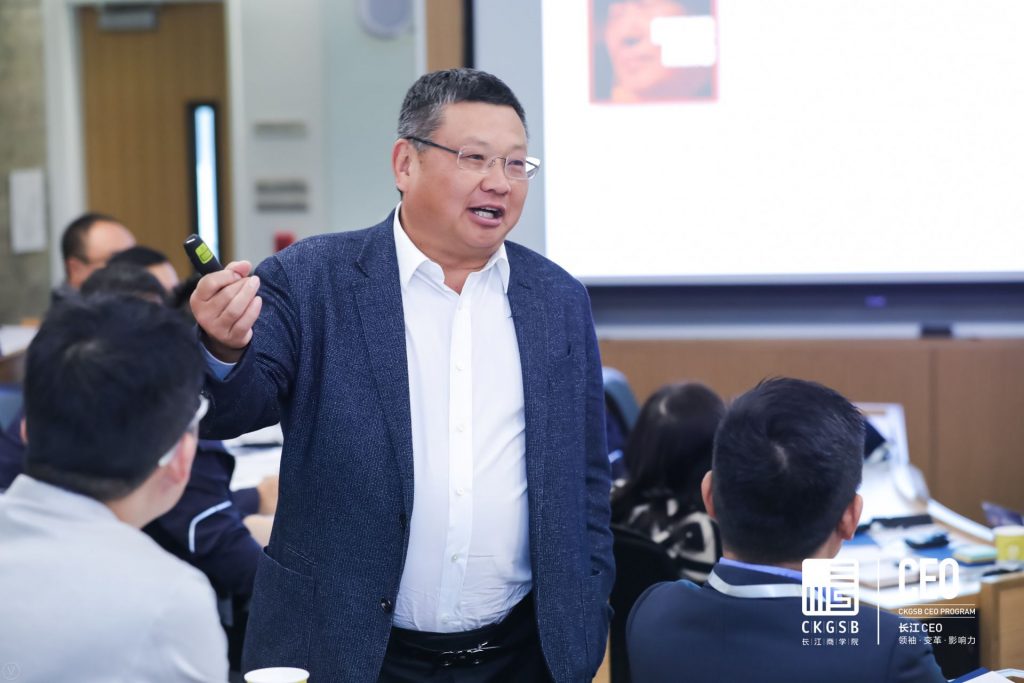 CKGSB Dean Xiang Bing delivering his talk at UC Berkeley Haas
CKGSB Dean Xiang Bing delivering his talk at UC Berkeley Haas
Dean Xiang pointed to the Chinese Ministry of Commerce’s recent policies as a good sign and opportunity for China to further open up, during which China shall allow the market to play its role in fostering fair competition. He explained that the major Chinese companies are still mostly comprised of state-owned enterprises (SOEs), which might be one of the reasons why the US and other countries have the wrong impression that all Chinese companies are government-backed and epitomize the so-called Chinese protectionism, but actually large, private “type-B” companies, such as Huawei, whose ownership are more publicly-owned, are what China has now and what it needs in order to be a real industrial power.
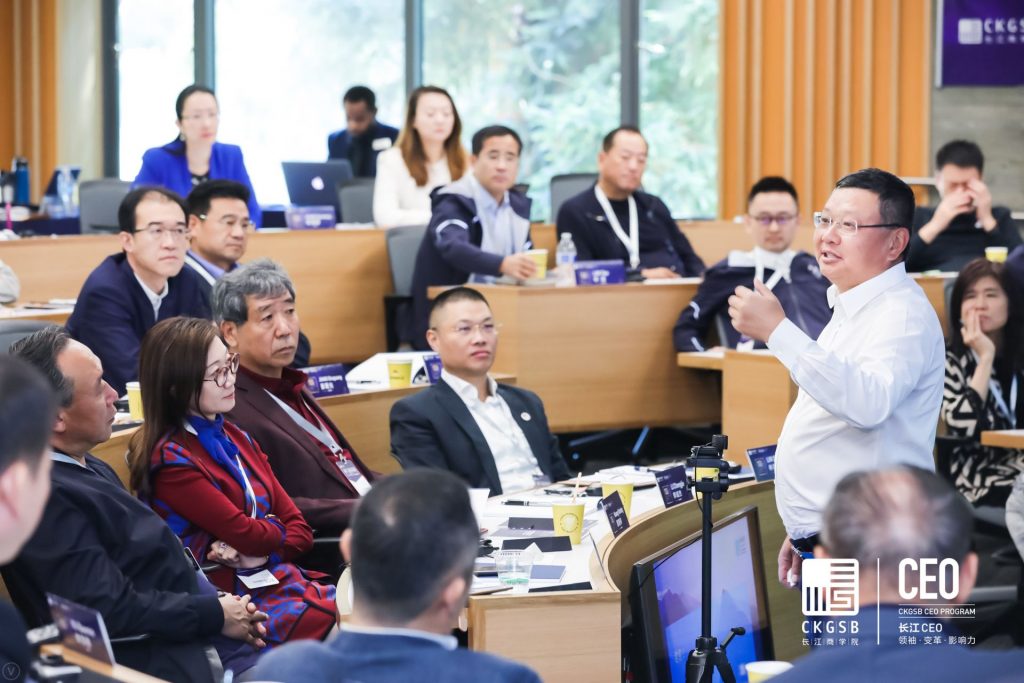 Dean Xiang Bing with students of the CKGSB CEO Program’s 13th intake
Dean Xiang Bing with students of the CKGSB CEO Program’s 13th intake
Going forward, what should companies do in the ever-changing world? “China,” said Dean Xiang, “needs to further deregulate industries, cope with its aging population and carry on with innovation for continued prosperity.” Now that the Chinese government possesses an increasingly larger influence, businesspeople should closely follow the government’s policies and trends taking place, while fully leveraging global resources, such as those in Latin American countries.
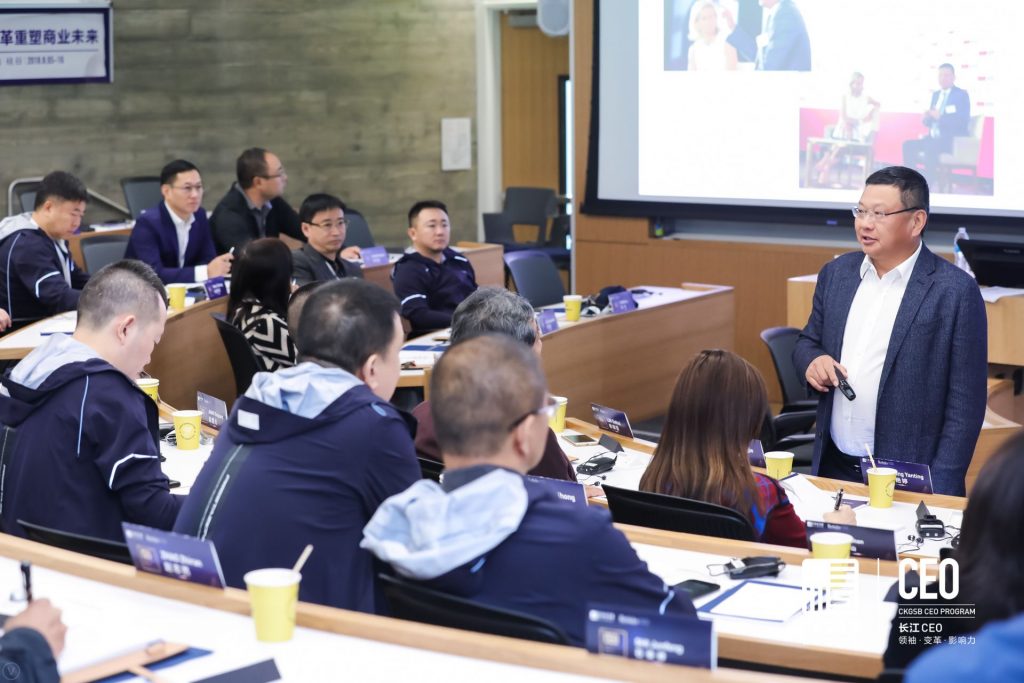 CKGSB Dean Xiang Bing explaining his views on the impact of high-tech on labor costs and industrial upgrading
CKGSB Dean Xiang Bing explaining his views on the impact of high-tech on labor costs and industrial upgrading
The dialogue between Dean Xiang Bing and Dean Laura Tyson was an essential part of the CKGSB CEO Program’s 13th intake, which focuses on leadership, innovation and influence. Students visited Silicon Valley, as part of the program’s second module, to learn about the latest technology and commercial breakthroughs. There they also learned how recent technological trends are going to affect the way they understand their industries, manage their business structure, and allocate their business resources.
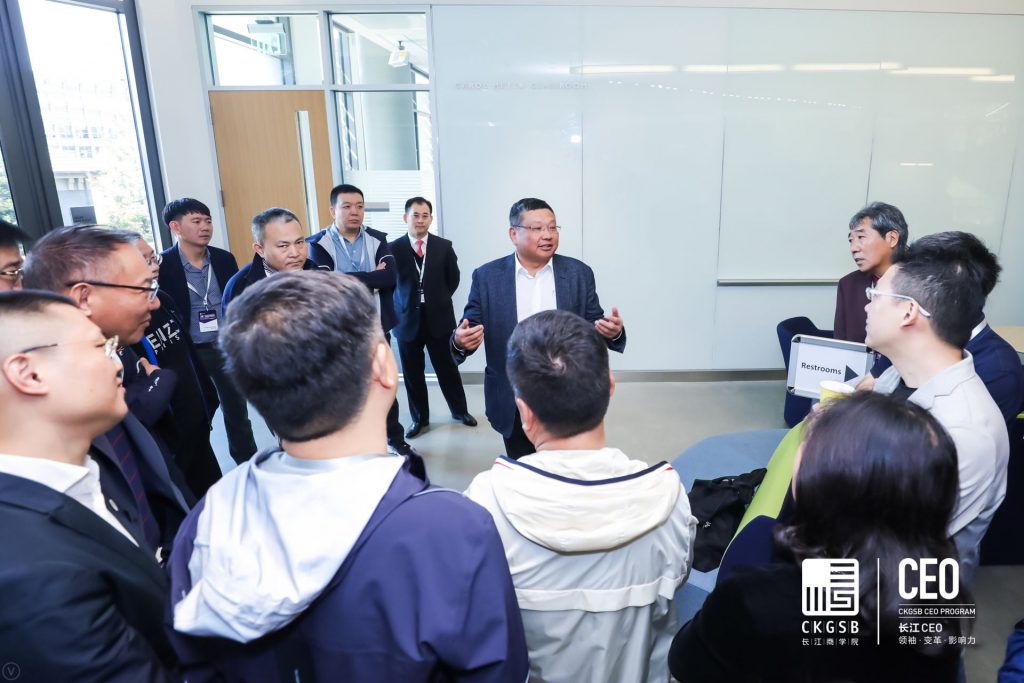 Dean Xiang Bing engages in discussions with participants after the talk at UC Berkeley Haas
Dean Xiang Bing engages in discussions with participants after the talk at UC Berkeley Haas
CKGSB seeks to build a global platform on which business leaders, engineers and academics can access, share and fully utilize resources on technology innovation. UC Berkeley, the host of CKGSB’s CEO Program’s US module, is one of the six leading institutions that partners with this program.
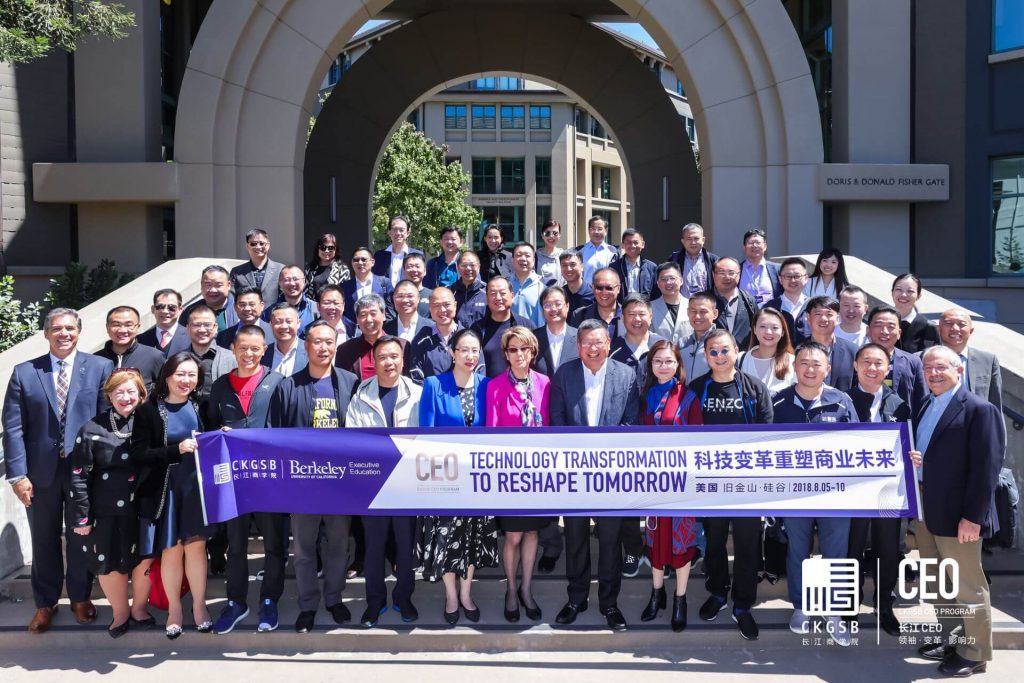 Participants of the CKGSB CEO Program at UC Berkeley Haas
Participants of the CKGSB CEO Program at UC Berkeley Haas